Looking Up, 16-page English PDF Edition, Back Issues and Current Issue
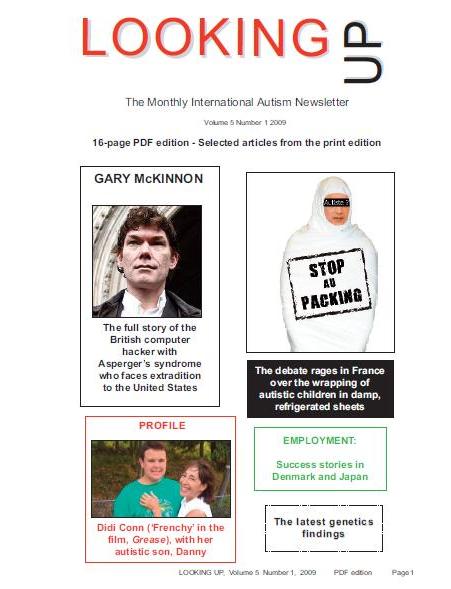
|
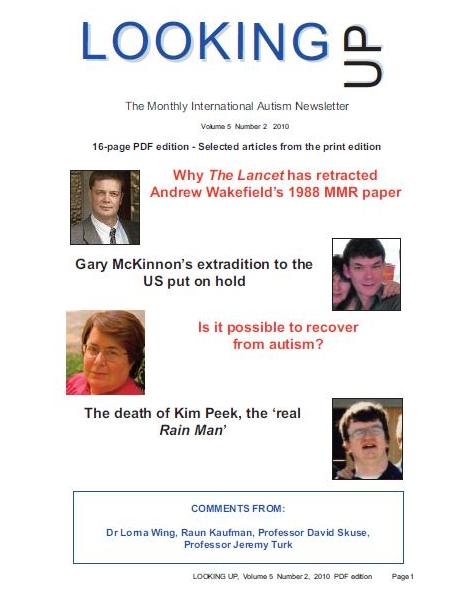
|
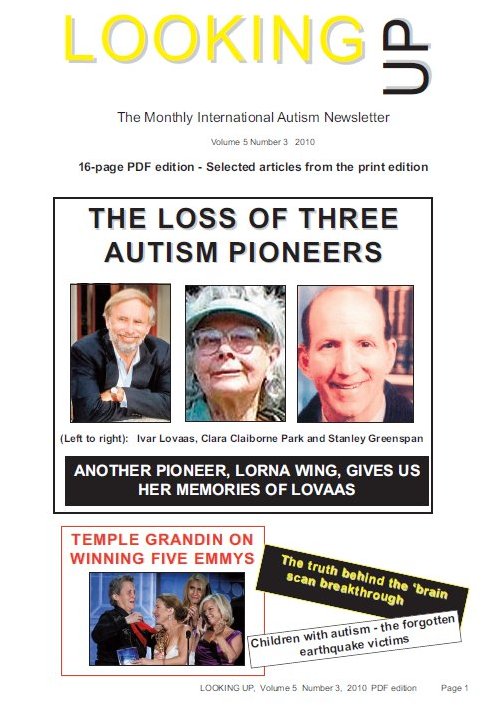
|
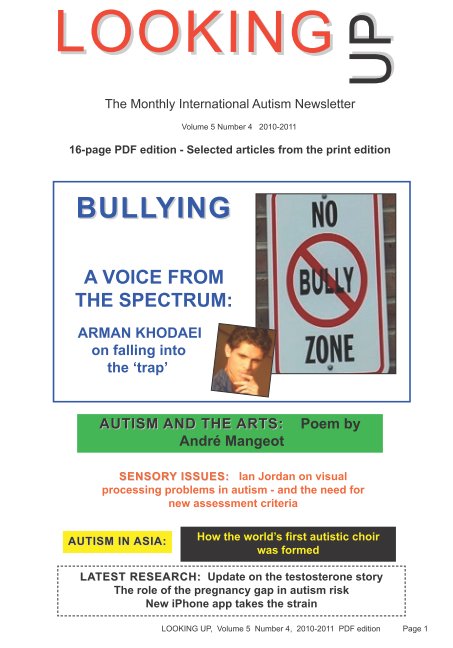
|
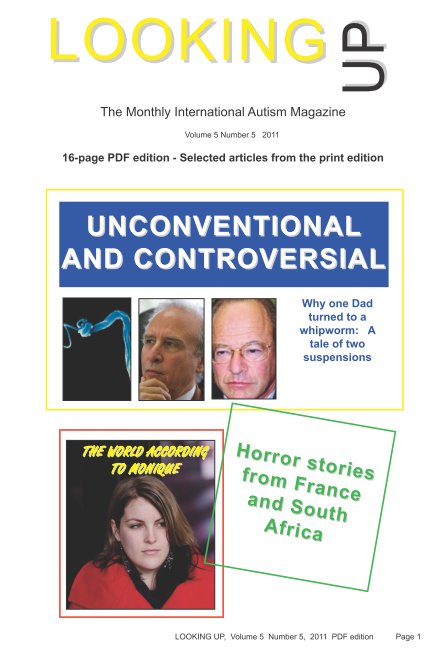
|
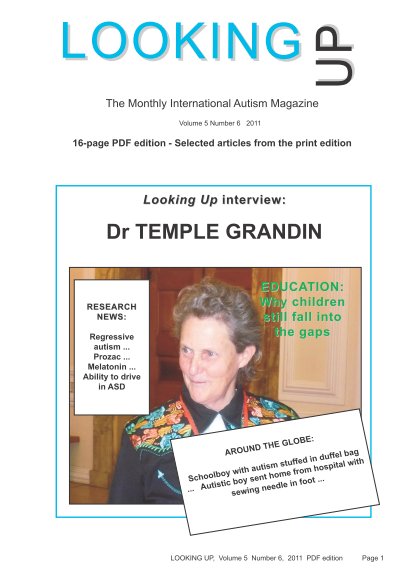
|
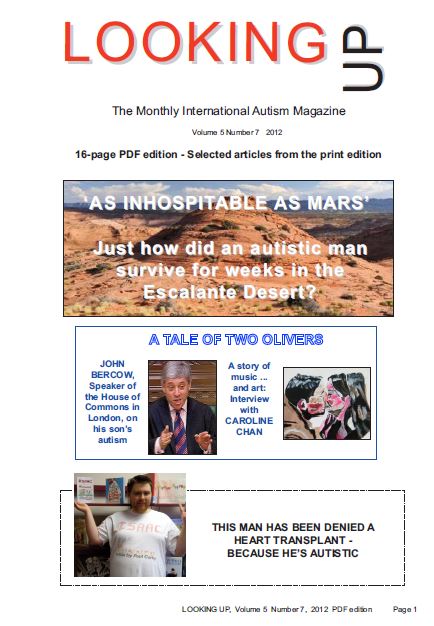
|
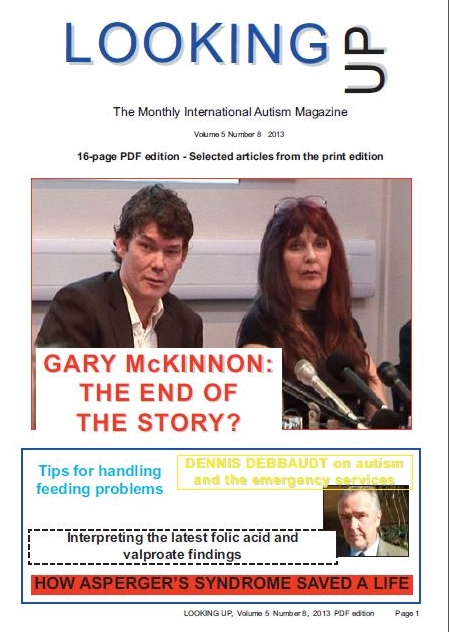
|
| Home page | Subscribe (print edition) | Selected articles | Our publications | Our mailing lists |
| PDF edition | Subscribe (PDF edition) | Back issue contents | Autism books | Contact us |
From Volume 3 Number 1
Dr
William Shaw, director of The Great Plains Laboratory for Health,
Nutrition and
Metabolism in Lenexa, USA - which tests for biological factors which
may
contribute to the behaviours seen in
autism, Asperger’s syndrome, Down’s syndrome and other conditions -
spoke to
ADAM FEINSTEIN, Editor of LOOKING UP, in Barcelona
ADAM
FEINSTEIN: An Italian mother of an autistic child recently complained
to me
that, while we had thankfully escaped the bad old days when parents
were blamed
for their child’s autism, we were now confronted with a jungle of
biomedical
therapies and treatments. How does a parent today, anxious to find the
best way
to improve a child with autism, negotiate his or her way through this
new
“minefield”?
Dr WILLIAM SHAW: It is a difficulty, and the best thing is to find someone who will orchestrate all these therapies. We have taken this approach in offering a very comprehensive profile now which tests for all the factors, including wheat and dairy allergies, candida, as well as possible genetic causes of autism. By testing all of these, we then set up a long conference with the parents. We can orientate them as to which are the priorities. It’s good business for us, but it’s also very good for the parents, because they have a single institution which is knowledgable and can handle virtually all the issues.
AF:
In your book, Biological Treatments for
Autism and PDD, you say that certain treatments work best with children
with
regressive autism. Can you explain this?
WS: Well, it it is true that the children with the most severe problems frequently have the most severely abnormal biochemical features, so it is easier to locate the problems and correct them.
AF:
What I was specifically referring to was the
account you give in your book of the Vancomycin antibiotic study. You
said you
limited that study to regressive children: those who seemed to be
progressing
normally and then regressed into autistic features. Why were they
chosen?
WS: Because it was felt that, in those cases, the microbial organism was not in-born, but acquired. So they were looking for children in which the micro-organism was suspected of playing a role in their autism. Although the Sandler study did not bring out the clostridia, my interpret-ation of it is that it is consistent with the clostridial origin of this problem. Also, Dr Feingold at UCLA has begun to isolate the unique species of clostridia from the gastrointestinal samples of children with autism.
AF: Have there been any studies which have shown distinct biomedical differences between children with classic Kanner-type autism and regressive autism?
WS: It is difficult, because it depends on the parents’ perception of when problems began. In a few cases, parents say they are sure that their child was not developing normally.
AF:
But is there a different biochemical profile?
WS: It’s hard to say. We’ve seen young infants who have already developed the candida problem and the parents noted that the infant was not making good eye-contact, So even individuals who have autism from birth may also have abnormal gut flora at an earlier age than those who developed autism later after multiple use of antibiotics. It is not necessarily the case that they had a different biochemical profile.
AF: So presumably we are nowhere near the stage where we could look at a urine sample and say: “That child has regressive autism”?
WS: No, we’re not.
AF:
Would you say that most of the children you
treat are low-functioning?
WS: No. We deal with the entire range, from the very severely affected to children with borderline autism and Asperger’s syndrome. But some of the most dramatic changes are to be seen in the severe ones, because they have such a long way to go.
AF: My autistic son, Johnny, sleeps well. Now, in your book you claim that yeast problems can cause sleep problems. Could you use a rather spurious reverse logic and say that, since an autistic child sleeps well, he or she is unlikely to be suffering from yeast problems?
WS: I wouldn’t go that far. It would require a very large data analysis. But it might be a very interesting approach.
AF: I find there are a number of paradoxes which arise out of the biomedical model of autism. One is the whole auto-immune question. Now, many studies do point to the fact that auto-immune abnormalities exist in children with autism. But how is it that my son, Johnny, can eat anything - indescribable objects in the garden, like live slugs, as well as his own faeces? If there is an immune deficiency, why is my son not physically ill more often? In fact, he appears to be the most physically healthy in the family.
WS: There are different types of auto-immunity. For example, the blame for auto-antibodies has been associated with mercury. That has been among the most common toxins linked with an auto-immune response. But auto-immunity can also be elicited by candida in virtually every tissue. So there is a wide range of auto-immunity and ways in which toxins, drugs and abnormal micro-organisms can all elicit different types of auto-immunity.
AF:
But you are not talking about a weak immune
system in a more general sense?
WS: There are a lot of children with autism who do indeed have a depressed immune system. That is an independent issue from auto-immunity.
AF:
So how do you explain that a child with a
depressed immune system is able to eat the foulest objects which would
make
most of us ill?
WS: That could be caused by the abnormal heavy metals. These will sometimes cause pica -craving for abnormal non-food items - because they are looking for other metals which will help to change to ratio of abnormal metals.
AF:
At a recent conference in the United States,
you suggested that part of the adverse effect of vaccines in the case
of
children with autism could be due to the gelatin in the vaccines. Could
you
explain your theory?
WS: I believe that part of the vaccine effect could be due to the large amount of hydrolised gelatin present in virtually all vaccines. The hydrolised gelatin could have a pronounced effect by completely shutting off DPP-4 - a peptidase which is involved in the regulation of so many hormones in the intestinal tract, as well as the nervous and immune system, during a critical phase of development. Mercury is also an inhibitor of DPP4. In fact, a number of papers have come out indicating that there are various neuropsychiatric disorders in which DPP-4 is altered. For example, individuals with severe depression or alcoholism were found to have marked reductions in DPP-4.
AF:
How do you react to the general scepticism in
the mainstream medical community to many of your ideas?
WS: It has been a common factor that every new advance which had any merit engendered the same scepticism. The original concept of vaccination was ridiculed. When Jenner suggested the idea of injecting infectious material into a patient, this met with tremendous scepticism - but now we have the opposite problem, in that vaccines are the mainstay of medical practice. When Pasteur proposed a rabies vaccination, there were calls for him to be executed and strung up on the public square. When the American, Joseph Goldberger, went against the prevailing view and claimed that pellagra was a dietary deficiency, and not an infectious disease, he was ridiculed for years. People would laugh and scoff whenever he walked into a room. It took ten or twenty years, but now his view is so widely accepted that it is hard to remember that anyone thought pellagra was infectious. So virtually every radically new idea is beset by these initial rejections. What it requires is that the adherence to the old ideas dies.
AF:
Many people do not accept the disease model
of autism. Even if you regard autism as a disease, I’m sure you would
acknowledge that parents must combine any biomedical treatments with
the
appropriate educational methods?
WS: Absolutely. I always say that parents should avail themselves of every therapy available, because even after the child has undergone a biomedical therapy, he does not have a normal development and needs additional assistance.

|

|

|

|

|

|

|

|
| Current 40-page print edition issue | |||||||||||||||
|---|---|---|---|---|---|---|---|---|---|---|---|---|---|---|---|
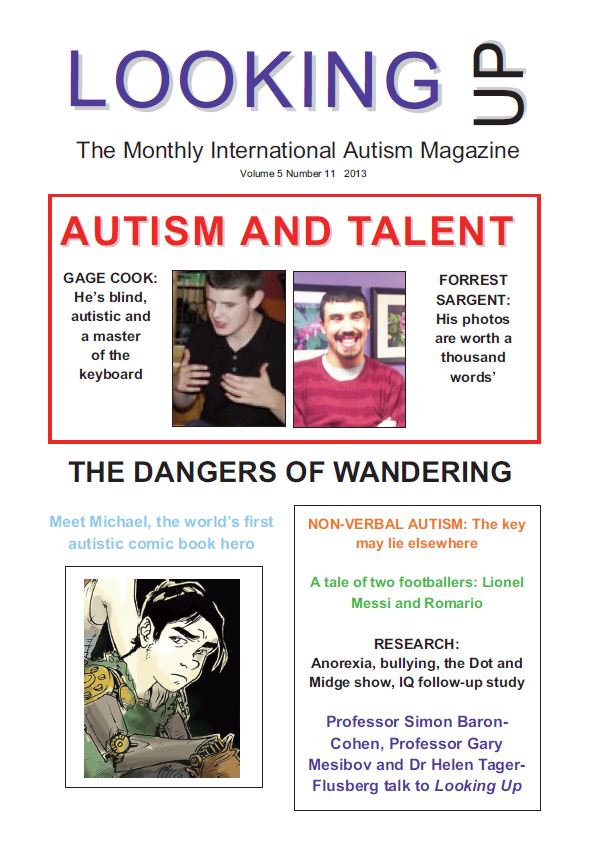
|
| ||||||||||||||
| PRINT EDITION BACK ISSUE CONTENTS AND FRONT COVERS | ||||||||||||||||||||||||||
|---|---|---|---|---|---|---|---|---|---|---|---|---|---|---|---|---|---|---|---|---|---|---|---|---|---|---|
| VOLUME 1, Number: | 1 | 2 | 3 | 4 | 5 | 6 | 7 | 8 | 9 | 10 | 11 | 12 | VOLUME 2, Number: | 1 | 2 | 3 | 4 | 5 | 6 | 7 | 8 | 9 | 10 | 11 | 12 | |
| VOLUME 3, Number: | 1 | 2 | 3 | 4 | 5 | 6 | 7 | 8 | 9 | 10 | 11 | 12 | VOLUME 4, Number: | 1 | 2 | 3 | 4 | 5 | 6 | 7 | 8 | 9 | 10 | 11 | 12 | |
| VOLUME 5, Number: | 1 | 2 | 3 | 4 | 5 | 6 | 7 | 8 | ||||||||||||||||||
| You can find our PDF EDITION CONTENTS AND COVERS on our PDF EDITION BACK ISSUES PAGE | ||||||||||||||||||||||||||
| Home page | Subscribe (print edition) | Selected articles | Our publications | Our mailing lists |
| PDF edition | Subscribe (PDF edition) | Back issue contents | Autism books | Contact us |